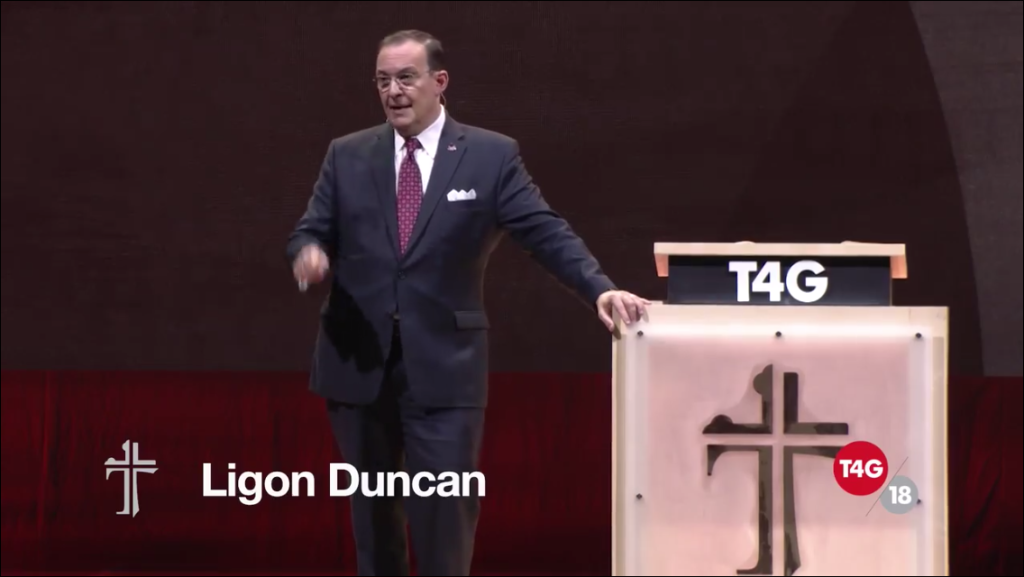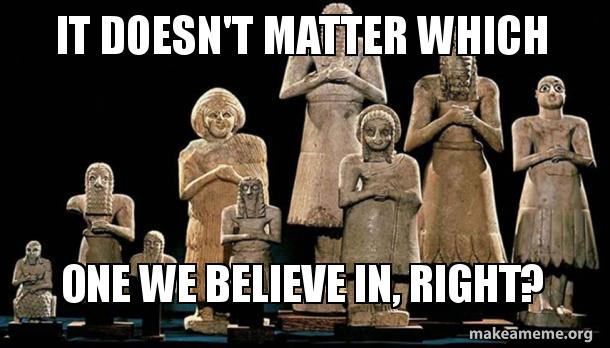Over the past year here has been an ongoing discussion around issues of justice within American evangelicalism. Some of this discussion has been helpful, some of it not so much. In this discussion there is one area that I am growing increasingly concerned about. The claim has been made, and in my opinion well substantiated, that much of the language and reasoning evangelicals have been using has not been biblically ground, but has rather been based on cultural Marxism (here, here, and here). My concern is the dismissive response this claim has received. It is this dismissive spirit, the lack of even being willing to engage the critique, which most alarms me. I have seen in many places this past year and it reminds me of something else I have seen.
An example of this dismissive response can be found in Ligon Duncan’s message at this year’s Together for the Gospel. Duncan, who is the chancellor of Reformed Seminary, said the following about any potential influence of Marxist thought in his reasoning, “There are a lot of things to worry about in life, don’t ever worry that Lig Duncan really grooves on cultural Marxism.”
Duncan preaching at Together for the Gospel 2018
We can all rest well tonight knowing Duncan isn’t sleeping under USSR sheets and cuddling up next to a Karl Marx doll. But in all seriousness, while his response drew a lot of laughs, it shows how far down this path we may already be. I believe Duncan and others like him intend no wrong, and in fact that their hearts are in the right place, but that does not change the danger evangelicalism is currently facing.
I have seen this dismissive spirit before. It mocks any call for introspection before Scripture as coming from conspiracy theorists. About a decade ago I was a member of Christian institution which was in great turmoil about whether or not post-modernism was causing theological drift. Mature, well-respected people from within this community bravely brought these concerns to leadership. The leadership summarily dismissed even the possibility of it being true. What followed for the institution was a time of strife, chaos, and decline in biblical fidelity. Instead of careful thinking, trying to understand the concerns, and a return to measuring all things before Scripture the concerns were mocked and the people who made the claims were vilified.
The charge of influence from post-modernism really should not even have been debatable. Post-Modernism, and its stress on moral relativism, was and still is the very air we breathe in our society. No one who lives in the West can claim to be impervious to all its influences. To deny this would be akin to a fish denying it is in water. The question is not if, but how much we have been influenced by our culture. So then the question should become, “How do we as Christians counteract this influence?”
When the leaders of this institution refused to even consider they were being influenced by Post-Modernism, it proved how influenced, blind, and vulnerable they already were. If your enemy is at the gates and the king refuses to acknowledge his city is in any danger, the city will surely burn to the ground. In biblical terms, it is wrong to say, “Peace, peace,” when there is no peace. Saying there is peace when there is war is a recipe for defeat.
About a decade has past since this incident. Where is the institution now? Sadly, there are people on staff today who publicly support homosexuality, people who deny the institution's doctrinal statement, and people who reject the Christian worldview at every turn. This would have been unthinkable twenty years ago. The warnings were not only correct, but they underestimated the severity and immediacy of the threat. It stands today as reminder for serious consideration for how our culture is influencing us.
Cultural Marxism is an offshoot of post-modern relativism. The two go together. Post-modernism is the fertile soil cultural Marxism grows in. If any of us think we cannot be influenced by this subversive teaching, then the chances are we have already have been. The only way to stand against the spirit of the age is to clearly identify it, and then to intentionally work against it by searching the Scriptures. The dismissive spirit of evangelical leaders like Duncan is reminiscent of what happened at my institution. When we refuse to acknowledge a problem exists it only makes matters worse.
I do not believe most of the evangelical leaders using cultural Marxist language and reasoning are doing so for nefarious reasons, but this does not change the danger we face. I have learned much from these men, and I have seen them think precisely and biblically on many issues. This is why it is so alarming they seemingly refuse to do so here. It is out of character for them. What is driving their willful blindness? I have some thoughts on that, but I will not share them here.
Christians have seen how this story ends many times throughout church history. This is how theological liberalism spread like a cancer. This is how it killed churches and denominations which were once faithful. This is how my former institution became infected and is now in the process of spiritually dying. Change does not happen overnight, but gradually. Decline happens when valid concerns are dismissed and laughed off. It happens when those who expresses such concerns are vilified and ignored. It happens when we refuse to humbly consider the critique of godly men. It happens when we fail to take every thought captive to Christ.
Here is my warning, God is not mocked. You reap what you sow. If you sow post-modernism, then you will reap moral relativism, Marxism, and infidelity to the morality of Scripture. If you sow theological liberalism, then you will reap spiritual death. If you sow cultural Marxism in the church, then you will reap its fruit—spiritual decay, unfaithfulness, injustice, and death. God is not mocked. If we seek to build his church on anything but his Son and his Word, it will collapse. This has played out many times in history. You will reap what you sow. This is God's world, we just live in it. The good news is that it is not too late to take this issue seriously and measure it carefully before Scripture. God honors repentance, but first, we must be humble enough to consider we may be wrong.
So my plea is for humility. For evangelicals to measure these things carefully before Scripture. To remove this prideful and dismissive spirit. For us to view correction from other mature believers not as personal attacks, but as a chance to grow together in wisdom. My plea is for us to cultivate the attitude behind Proverbs 27.6, “Faithful are the wounds of a friend.” If we are willing to do these things, then there is great hope for the future of evangelicalism. If we sow cultural Marxism, we will reap death. If we sow humility, repentance, and fidelity to God's Word we will reap life.
By: Levi J. Secord






